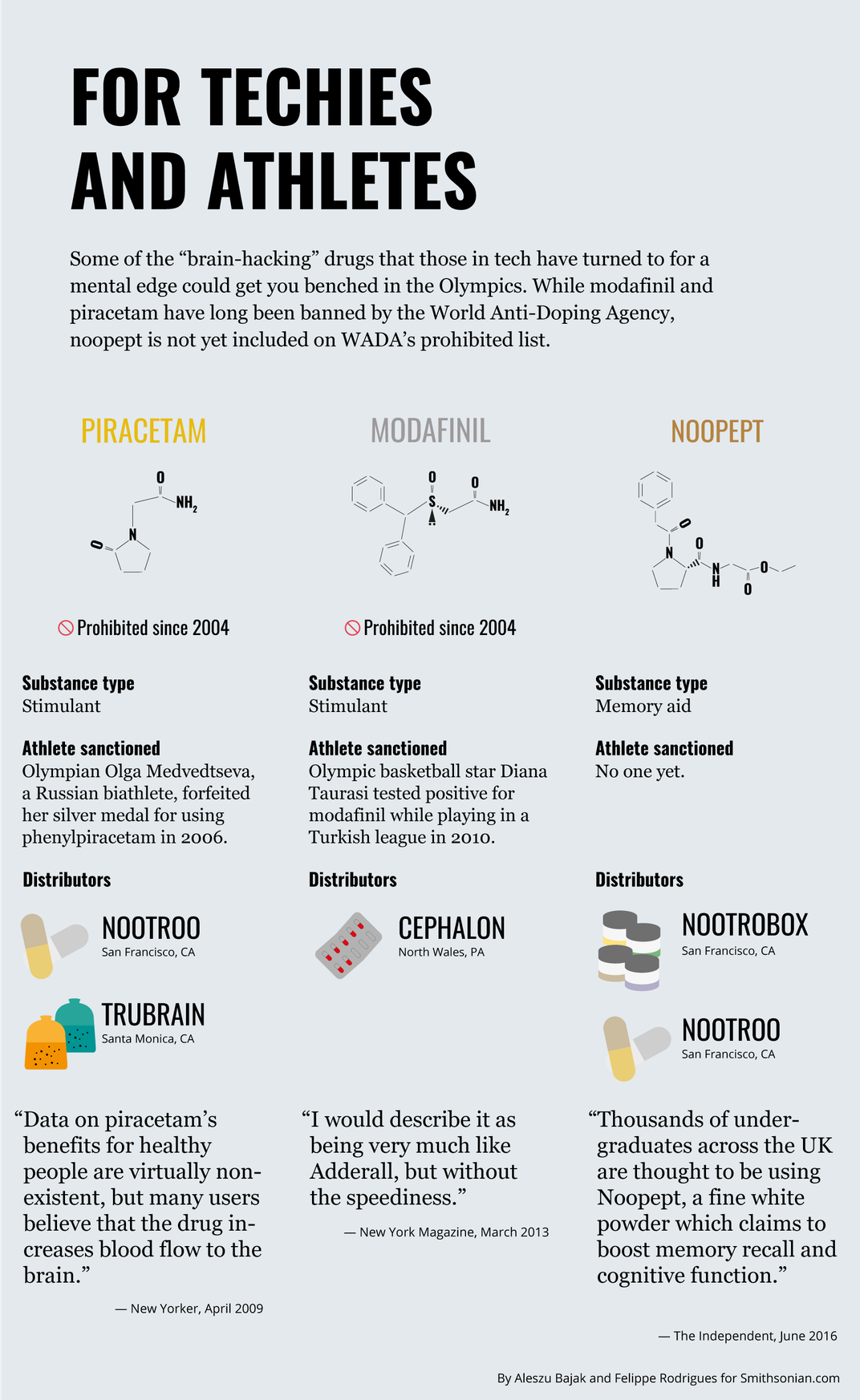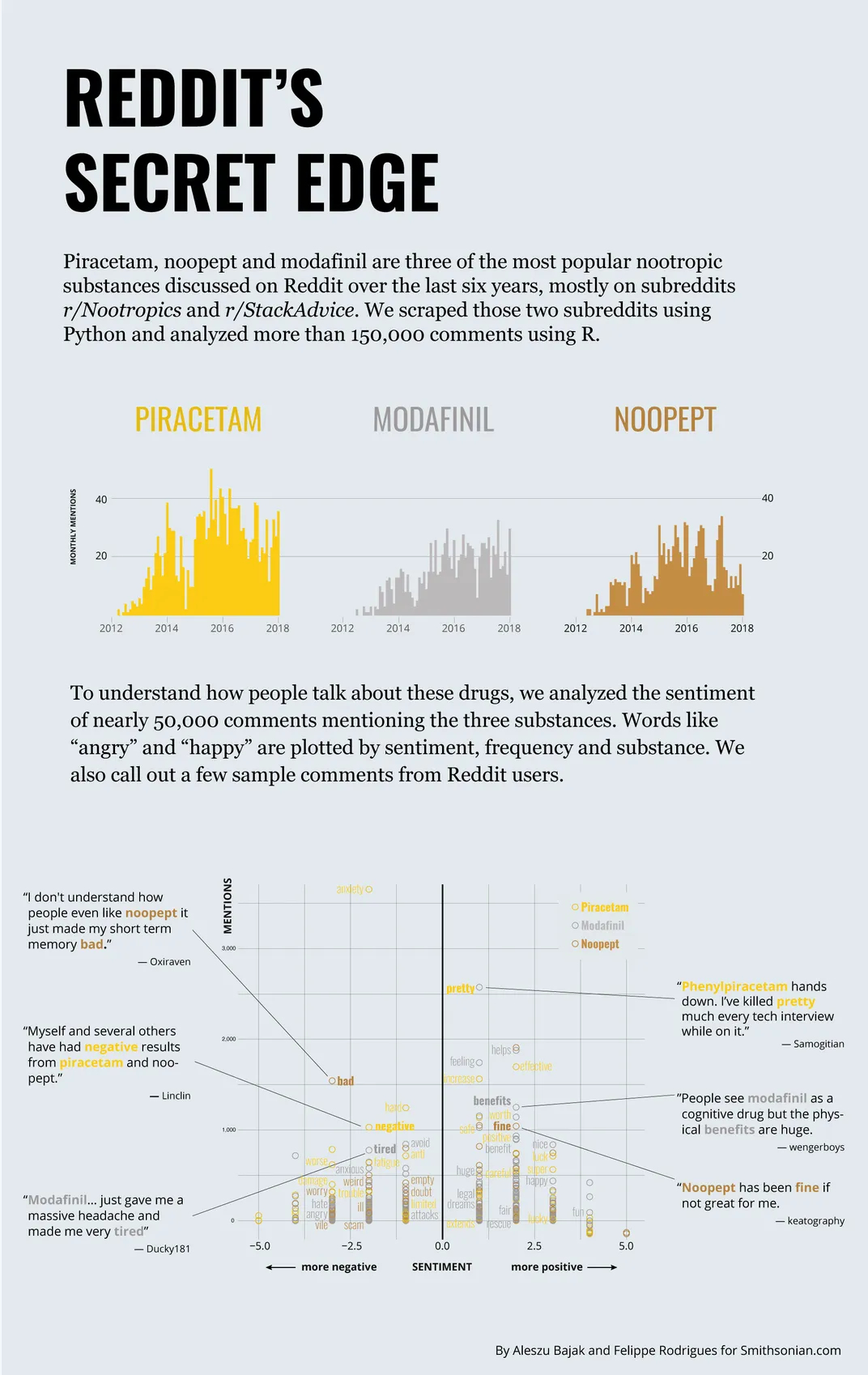What Reddit Can Tell Us About the Afterlives of Banned Olympic Drugs
We analyzed 150,000 comments to find that the Internet is still openly discussing these mind-bending stimulants
/https://tf-cmsv2-smithsonianmag-media.s3.amazonaws.com/filer/04/79/0479d784-8e83-4485-b81c-b089e5b73022/screen_shot_2018-02-09_at_51717_pm.png)
In January 2006, 30-year-old Olga Medvedtseva (formerly Pyleva) was treated by her doctor for an ankle injury. The Russian Olympian was a proven talent, having already won a gold and bronze in the biathlon at the 2002 Salt Lake City Games. But a month later, after winning a silver medal at Torino, Medvedtseva tested positive for a banned stimulant known as carphedon—making her the first athlete caught doping at that year’s games.
The case was a simple one. Carphedon, which was synthesized in 1983 by Russian chemists to help astronauts stay mentally and physically alert in spaceflight, had been banned by the World Anti-Doping Agency since 2004. Despite insisting she was not guilty—the drug was apparently an ingredient in a medication her doctor had prescribed for her ankle—Medvedtseva was stripped over her medal and thrown out of the Games. "I am sorry that I shattered my reputation," she said.
That the Olympics has a longstanding drug problem is no secret. Ever since its inception in ancient Greece, athletes have turned to elixirs, stimulants and other workarounds to gain the slightest edge over the competition.
Since 2014, around 1,000 Olympic athletes have failed some sort of doping test using stimulants like carphedon, according to statistics from the World Anti-Doping Agency. Overall, stimulants make up about 20 percent of substances tested positive for in Olympic sports. (There have been thousands more infractions for other substance use including hormone therapy and anabolic steroids—but these are banned year-round, compared to stimulants, which are only banned in competition.) Last year, the International Olympic Committee banned Russia from the Pyeongchang Games after an investigation into state-sponsored doping.

But you may not know that many of these same drugs that get banned in the Games go on to lead rich online lives—as the preferred performance enhancers of regular folk.
Like carphedon, many of these drugs fall into a category known as Nootropics, a name that derives from the Greek word for “mind”; they're also known as smart drugs or cognitive enhancers. Some are sold as health supplements, thanks to a loophole in FDA regulations. Others use disclaimers to assure the authorities that they are for research purposes only. But one way or another, these drugs are circulating in the public sphere and often associated with the world of tech.
These drugs didn’t get their start in the Olympics—piracetam, a close cousin of carphedon that is considered the original mind-bending drug, was discovered in the 1960s—but many only made mainstream news after celebrated athletes were stripped of their medals after getting caught doing them.
We wanted to see what happens to these substances after they've had been booted from the Olympics, so we took to Reddit. By analyzing 150,000 Reddit comments, we found that these same stimulants are now openly discussed on forums about recreational drugs and tech, with people trading tips on where to buy them (usually on dubiously legal websites), their effects, and their traceability. We focused on piracetam, modafinil, and noopept, three Nootropics that are some of the most-talked-about on Reddit and are widely marketed in the U.S.
